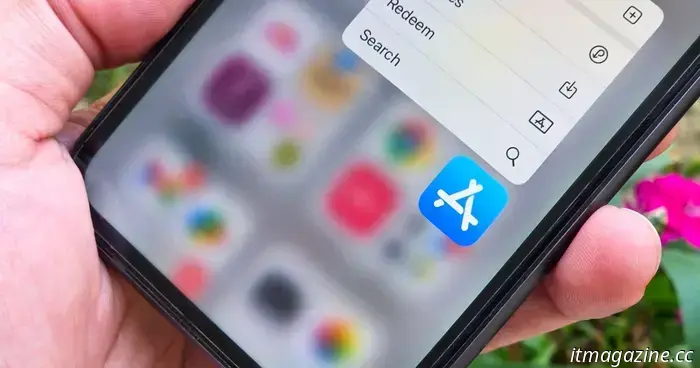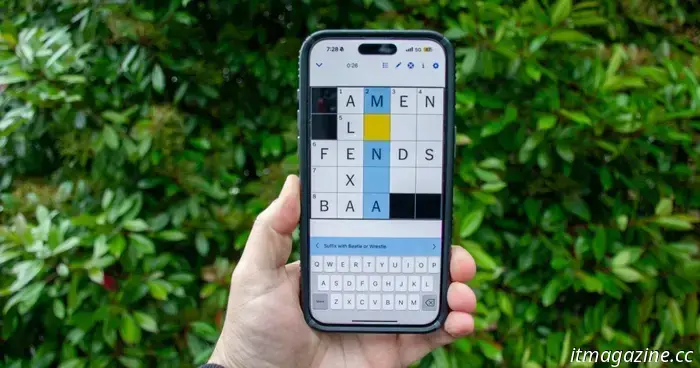
Apple reduces App Store fees, yet experts advise caution regarding new pricing guidelines in the U.S.
Apple is set to make significant changes to its iOS App Store. This sentiment is shared among individuals involved in creating, selling, marketing, or scaling applications for iOS, iPadOS, or other Apple devices. Users, in addition to developers, are expected to benefit from these changes — or at least that’s the hope.
To begin with, Apple has agreed to revise its commission policy on transactions occurring within apps. Typically, app developers and publishers do not absorb these costs, which then transfer to consumers. As a result, if an app or subscription price was $10, you might have ended up paying as much as $13, depending on the size of the app's user base. This practice is likely to end now, potentially easing the financial strain on consumers. However, the issue is more complex than it seems at first, prompting us to consult experts for clarification.
Before diving into the details, here’s a brief overview.
Apple's Decision to Change
The revised pricing policy for the App Store has been in development since 2021, following a court order for Apple to provide alternative payment options within apps. This development comes as a result of an antitrust lawsuit initiated by Epic Games, the publisher of Fortnite, and affects all developers selling services in the U.S.
The situation began in 2020 when Epic introduced alternative purchasing options for Fortnite players to buy virtual currencies without relying on Apple’s payment processing. Upset by this move, Apple suspended Epic’s developer account and removed Fortnite from the App Store. This led to a contentious legal battle, culminating in a federal court ruling that obligated Apple to allow users various payment methods for app subscriptions outside of Apple Pay.
Apple appealed this ruling several times, citing potential threats to iOS security, even taking the matter to the U.S. Supreme Court, which rejected the appeal. In 2024, Apple was compelled to permit developers to integrate external payment options in their apps, albeit at a slightly modified commission rate. Although Apple typically charges up to 30 percent on transactions, it reduced this to a maximum of 27 percent — including a lower rate of 12 percent for developers earning under $1 million annually.
Apple justified the high commission as a means to ensure secure transactions and provide developers with access to a vast user base. However, the 27 percent fee, in addition to the costs associated with maintaining payment platforms, handling taxation and compliance, and managing payment tracking, could create additional burdens on developers.
Apple mandated that developers apply for special "entitlements" to employ alternative payment methods, implemented cautionary warning screens for external payment buttons, and restricted advertising of subscription benefits outside the app.
This approach was continually challenged by Epic Games, resulting in a federal court in California ruling in April 2025 that Apple was engaging in anti-competitive practices and hindering fair pricing. The court viewed Apple’s methods as efforts to dissuade users from leaving its payment platform by presenting alternatives as insecure.
The court also ordered legal proceedings against Apple’s Chief Financial Officer, Luca Maestri, for disregarding previous court directives.
In response, Apple rapidly updated its pricing policy, eliminating transaction fees and instituting a zero percent commission rate for transactions made by users exclusively in the U.S.
Reduced Prices and Other Benefits for Users
This court decision effectively ended Apple’s ability to charge commissions on external payments in the U.S., though Apple could still impose up to 30 percent if developers opt to use Apple's billing systems. Now, developers can offer users a variety of subscription options and in-app purchases with multiple payment methods without incurring additional fees.
This change is expected to lower costs for developers, which should, in turn, benefit consumers. Subscription prices for U.S. users are anticipated to decrease. While the decision to lower prices ultimately rests with developers, there is potential for influential companies such as Epic, Spotify, Netflix, and PayPal — all of which have pushed for lower subscription rates — to act quickly or risk negative perceptions.
Moreover, the court instructed Apple to streamline the process by lifting certain restrictions. The iOS interface is no longer allowed to display intimidating warning screens when directing users for external payments, nor can it reject apps for encouraging subscriptions through websites instead of within the app.
In addition to cost reduction, the updated rules will offer a wider array of payment options for subscribers. Depending on the payment platform developers choose, users may be able to pay via credit or debit cards, ACH bank transfers, payment services like Zelle, PayPal, Venmo, and even cryptocurrencies. Platforms such as Stripe may also enable microloan options, also known as buy now, pay later (BNPL) options, similar to Klarna.
A Noteworthy Win? It Depends on Perspective
While the ruling seems to favor users, it carries certain implications as well. Experts we consulted shared insights on these potential consequences and their indirect effects on users.
Nathan Hudson, CEO of Perceptycs, a global app growth and marketing agency,








Other articles
 DoorDash acquires Deliveroo for £2.9 billion — which is less than half of its initial public offering price.
For Deliveroo, independence has come to an end. For DoorDash, it's a daring investment in the fragmented yet still-expanding food delivery sector in Europe.
DoorDash acquires Deliveroo for £2.9 billion — which is less than half of its initial public offering price.
For Deliveroo, independence has come to an end. For DoorDash, it's a daring investment in the fragmented yet still-expanding food delivery sector in Europe.
 The initial teaser for Wednesday season 2 is preparing us for a premiere in August.
The second season of the show will be divided into two parts, with one half premiering in August and the other half in September.
The initial teaser for Wednesday season 2 is preparing us for a premiere in August.
The second season of the show will be divided into two parts, with one half premiering in August and the other half in September.
 NYT Mini Crossword solutions for Tuesday, May 6.
The NYT Mini crossword may be significantly smaller than a standard crossword, but it's still quite challenging. If you're having trouble with today's puzzle, we have the solutions for you.
NYT Mini Crossword solutions for Tuesday, May 6.
The NYT Mini crossword may be significantly smaller than a standard crossword, but it's still quite challenging. If you're having trouble with today's puzzle, we have the solutions for you.
 Exclusive: Latvian startup introduces autonomous drone eliminator.
The Latvian startup Origin Robotics has introduced BLAZE, an AI-driven interceptor drone designed to autonomously seek out and eliminate enemy drones.
Exclusive: Latvian startup introduces autonomous drone eliminator.
The Latvian startup Origin Robotics has introduced BLAZE, an AI-driven interceptor drone designed to autonomously seek out and eliminate enemy drones.
 Bill Hader will collaborate on writing a new HBO series focused on the Jonestown massacre.
The comedian seems to be transitioning towards more serious content at this point in his career.
Bill Hader will collaborate on writing a new HBO series focused on the Jonestown massacre.
The comedian seems to be transitioning towards more serious content at this point in his career.
 NYT Strands for today: clues, spangram, and solutions for Tuesday, May 6.
Strands offers a challenging twist on the traditional word search from NYT Games. If you're having difficulty and can't figure out today's puzzle, we've got assistance and clues for you right here.
NYT Strands for today: clues, spangram, and solutions for Tuesday, May 6.
Strands offers a challenging twist on the traditional word search from NYT Games. If you're having difficulty and can't figure out today's puzzle, we've got assistance and clues for you right here.
Apple reduces App Store fees, yet experts advise caution regarding new pricing guidelines in the U.S.
Apple's lowered App Store commissions are advantageous for consumers. However, experts are assessing whether it is genuinely beneficial for all parties involved.
